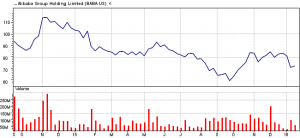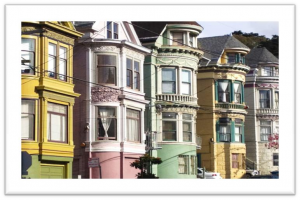
A lot of us have a habit of grouping things together and giving them a label. Most Chinese would agree that the United States is a democracy while most Americans would call China a communist country. Some would disagree and call the other side evil or some other names, but that’s the minority view, I hope. The fact of the matter is that countries, like people, are made up of many personalities. A person may be considered really mean while she would do anything for her family. A country, by the same token, may be conveniently considered communistic while certain acts don’t fall under that stereotype. Likewise, a so-called capitalistic society may do something that isn’t very complementary to free business. Let me list two examples below.
1) The Alibaba that Speaks Chinese
Remember the brouhaha of the Alibaba initial public offering (IPO) not too long ago in September of 2014, that sent their founder Jack Ma dancing all the way to the bank? After the mini-crash of the Chinese stock market in the first  two weeks of 2016 and the total gradual decline of about 25% of Alibaba’s value since the IPO (from about $95 to about $70) , the average American investor is learning real fast to say the Chinese words ta ma de 他妈的, ha-ha. Incidentally, did you know that when you think you are buying shares of Alibaba in the US, you are not really getting their shares? You are getting something called a variable interest entity (VIE), which gives you certain rights to a shell corporation set up by Alibaba in the Cayman Islands. This is to circumvent the Chinese law that bans foreigners from owning over a certain percentage of certain companies in certain industries. In other words, you are holding in your hands something quite uncertain.
two weeks of 2016 and the total gradual decline of about 25% of Alibaba’s value since the IPO (from about $95 to about $70) , the average American investor is learning real fast to say the Chinese words ta ma de 他妈的, ha-ha. Incidentally, did you know that when you think you are buying shares of Alibaba in the US, you are not really getting their shares? You are getting something called a variable interest entity (VIE), which gives you certain rights to a shell corporation set up by Alibaba in the Cayman Islands. This is to circumvent the Chinese law that bans foreigners from owning over a certain percentage of certain companies in certain industries. In other words, you are holding in your hands something quite uncertain.
As far as my little research shows, the Chinese government has not expressed a position on the ownership of a Chinese company through VIEs. Do we have stockbrokers among our readers who can help us out?
(Warning: The uttering of the emotional words ta ma de in front of your Chinese mother-in-law may be hazardous to your life.)
2) Who’s going socialistic: China or the US?
I heard that the real estate market in China has been booming for years. Landlords there can raise rent as much as  he can get it while enjoying the potential underlying appreciation of the property value itself. In San Francisco and a few other cities in the US, there is something called rent control law imposed by the local government. As an example, if you own rental property in San Francisco you can only raise the rent by 1.9% this year. You can’t ask the tenant to leave if you don’t like it or even if his lease just expired. You can ask him to leave if you promise him and the government that you are not renting it to anybody else for 5 years. Oh, even if the tenant is a nice person and agrees to move out peacefully, the law requires that you “help” him and his family with a relocation fee of about $5,500 a person, regardless of how much or how little rent he was paying. Sounds ridiculous? And we say China is a communist and authoritarian country? Is the pot calling the kettle black?
he can get it while enjoying the potential underlying appreciation of the property value itself. In San Francisco and a few other cities in the US, there is something called rent control law imposed by the local government. As an example, if you own rental property in San Francisco you can only raise the rent by 1.9% this year. You can’t ask the tenant to leave if you don’t like it or even if his lease just expired. You can ask him to leave if you promise him and the government that you are not renting it to anybody else for 5 years. Oh, even if the tenant is a nice person and agrees to move out peacefully, the law requires that you “help” him and his family with a relocation fee of about $5,500 a person, regardless of how much or how little rent he was paying. Sounds ridiculous? And we say China is a communist and authoritarian country? Is the pot calling the kettle black?
(Another warning: The law I cited above is not all-inclusive. If you want to know it all and you need help with insomnia, go to www.sfrb.org for the complete text.)
If the two events I just mentioned are hurriedly considered indicators of a trend, the two biggest economies in the world – the US and China – may be meeting at a mutual mid-point quite soon, at least financially. Let’s face it; no founder of a new company would reject the idea of raising 25 billion US dollars in an IPO. And no real property owner would like to see rent control laws imposed on her properties.
What do you think?
*** The End ***
(The dissemination of this writing is for non-commercial enjoyment only. The author reserves the copyright for himself)
Note: Click here to continue browsing other writings and works of Camillus Chan within this site